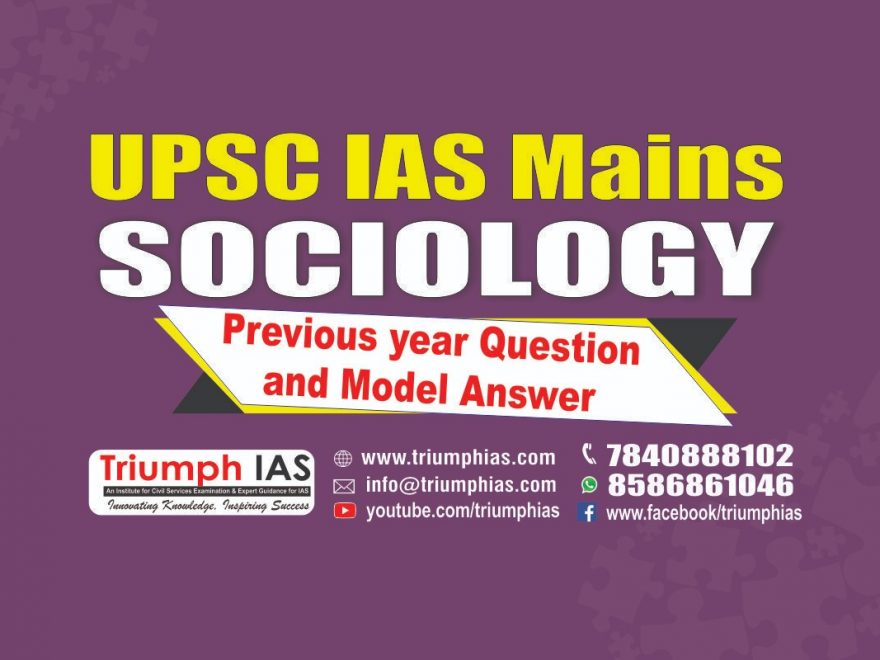Write short notes on “Post–Modernity” in sociology
MODEL ANSWER:
Modernity refers to a post-traditional, post-medieval historical period, marked by the move from feudalism towards capitalism, industrialization, secularization, rationalization, centralization, hierarchy, the nation-state and its constituent institutions. Modernization is the current term for an old process the process of social change whereby less developed societies acquire characteristics common to more developed societies.
Post-Modernism is an intellectual movement that became popular in the 1980s, and is characterized with the transformation from modernity to post modernity i.e., from an industrial to post-industrial society.
Although postmodernism emerged as a reaction against modernity it does not presuppose the end of modernity. Postmodernism is the belief that there is no absolute reality and the reality is socially constructed. Social reality is essentially fragmented, indeterminate and discontinuous.
Postmodernists claim that the classic social thinkers took their inspiration from the idea that history has a shape- it ‘goes somewhere’ and are progressive. Jean Francois Lyotard argues that this idea has now collapsed and there are no longer any ‘meta narratives’- overall conceptions of history or society- that make any sense.
Jean Baudrillard, the post-modern age is a world where people respond to media images rather than to real persons or places (social media boom). People presents their grief through social media with their likes and comments if any murder or rape happens, are they really feel the pain of victim. So, this is the virtual world of post modernism.
There are four key themes of the postmodern experience: –
- First, stable communication is no longer possible in an age of continually
manipulated information and symbols.
- Second, life is increasingly self-referential. As the line between news and
entertainment blurs, our social experience no longer provides a point of
reference for what is “real.”
- Third, not only is our reality self-referential, it is also thin and fleeting.
- Finally, postmodernism suggests a de-centered self where all the world is a text.
Some thinkers viewed ‘reinventing government‘ movement as an example of postmodernism. Postmodernism public administration rejects existing and accepted theories such as public management doctrine, constitutionalism and communitarians in favor of constructing a ‘discourse‘ theory (views public policy administration as a discourse i.e., either written or spoken communication as a means of formal discussion of debate) of public administration.
One staunch critic of postmodern theory is Jurgen Habermas, who sees modernity as an ‘incomplete project’. Instead of consigning modernity to the dustbin of history, we should be extending it, pushing for more democracy, more freedom and more rational policy. Habermas argues that Postmodernists are essentially pessimists and defeatists.
Thus, post modernism as a social movement views different kind of social reality which is distinguished from a modernized world and is more virtual, devolved and chaotic, thus impacting the course of future studies.

